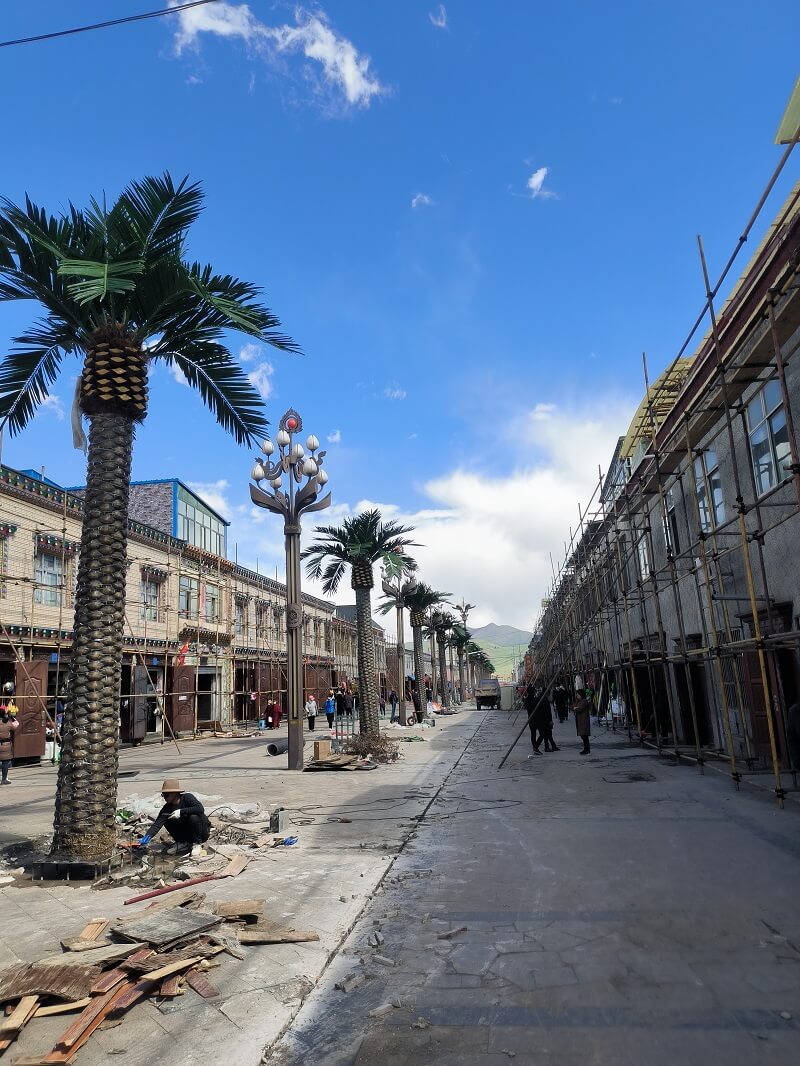Protecting the Environment and Saving Lives with Coconut Trees
Coconut trees have long been cherished as a symbol of tropical paradise, providing not only refreshing coconut water and nutritious meat but also essential materials for local industries, such as coir fiber, oil, and lumber. However, their value goes beyond economic benefits, as coconut trees also play a critical role in sustaining the ecological balance and enhancing the resilience of coastal communities against natural hazards. In this article, we will explore how coconut trees can be used to protect the environment and save lives, and why it is crucial to preserve and promote them in the face of global environmental challenges.
Firstly, coconut trees have a significant impact on the sequestration of carbon dioxide, a leading greenhouse gas that contributes to climate change. According to a study by the Food and Agriculture Organization (FAO), coconut plantations can store up to 562 metric tons of carbon per hectare, one of the highest levels among tropical crops. This is because coconut trees have larger and deeper root systems than most crops, which can absorb and store carbon in the soil for decades or centuries. Moreover, coconut shells and husks can be used to generate biochar, a charcoal-like substance that reduces carbon emissions by locking up carbon in the soil and improving soil fertility. By promoting sustainable coconut farming practices and utilizing coconut waste for carbon sequestration, we can mitigate some of the adverse effects of climate change, such as rising sea levels, more frequent and intense storms, and droughts.
Secondly, coconut trees are crucial for maintaining biodiversity and protecting coastal ecosystems from erosion and pollution. As coastal trees, they provide shade, shelter, and food for a variety of species, from birds and insects to crabs and fish. They also trap sediment and nutrient runoff from nearby land, preventing them from entering the water and causing eutrophication or beach erosion. In addition, coconut trees can help alleviate the impacts of ocean acidification by absorbing and converting carbon dioxide into bicarbonate, which can buffer the pH level of seawater and support coral and shell growth. By preserving and planting more coconut trees along coastal areas, we can enhance the resilience of marine ecosystems and preserve the unique biodiversity of islands and coastlines.
Thirdly, coconut trees are essential for human survival and well-being, especially in low-income and rural communities that depend on them for food, fuel, medicine, and income. A single coconut palm can yield dozens of coconuts per year, which can be consumed fresh, dried, or processed into various products, such as coconut milk, oil, flour, and sugar. Coconut oil, in particular, has gained popularity as a healthy and sustainable cooking oil that is rich in medium-chain fatty acids and antioxidants. Moreover, coconut water is a natural electrolyte drink that can replace sports drinks and soda, reducing plastic waste and improving health. Coconut leaves and stems can also be used for thatching, weaving, and building fences, while coconut shells and fibers can be used for handicrafts, charcoal, and biofuel. By supporting small-scale farmers and local entrepreneurs who rely on coconut trees for their livelihoods, we can create a more equitable and sustainable economy that benefits both people and nature.
In conclusion, coconut trees are not just iconic symbols of paradise but also critical agents of change in the face of global environmental challenges. By protecting, planting, and promoting coconut trees, we can sequester carbon, preserve biodiversity, and enhance human well-being. However, coconut trees, like many other natural resources, are also facing threats from climate change, land conversion, pests, and diseases. Therefore, it is essential to raise awareness of the value and vulnerability of coconut trees, and to implement policies and practices that incentivize sustainable and resilient coconut farming and value chains. Together, we can leverage the power of coconut trees to protect the environment and save lives.


 客服1
客服1  客服2
客服2 